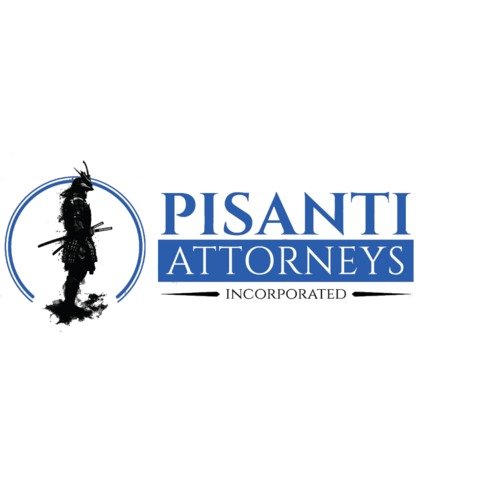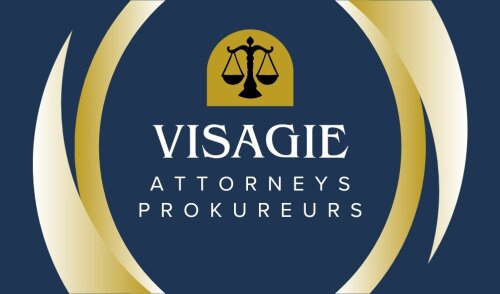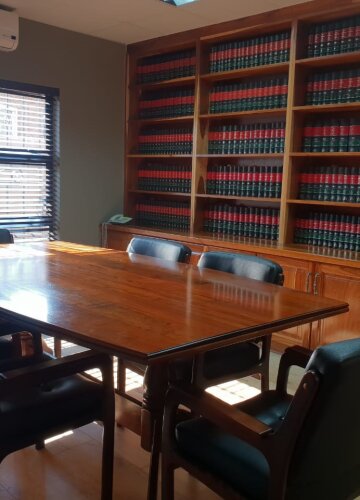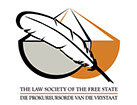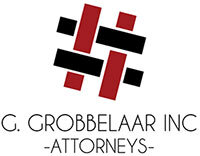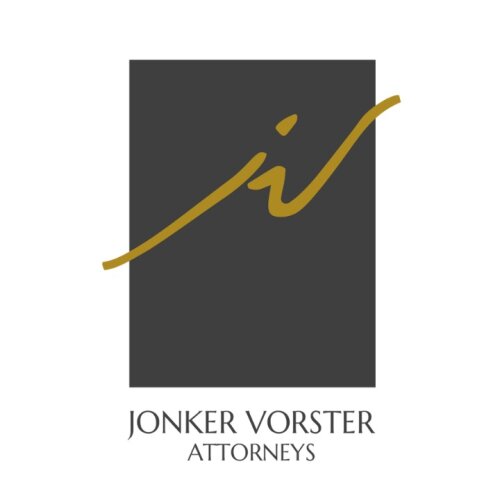Best Bankruptcy & Debt Lawyers in South Africa
Share your needs with us, get contacted by law firms.
Free. Takes 2 min.
Or refine your search by selecting a city:
List of the best lawyers in South Africa
South Africa Bankruptcy & Debt Legal Articles
Browse our 1 legal article about Bankruptcy & Debt in South Africa written by expert lawyers.
- Debt Collectors in South Africa: Harassment and Verification
- You can demand proof of the debt, the collector’s authority, and a full breakdown before you pay. Do not acknowledge the debt or make part-payments until you verify it. Harassment is illegal. You may set contact times, request written-only communication, and lodge complaints with the Council for Debt Collectors or... Read more →
About Bankruptcy & Debt Law in South Africa
Bankruptcy and debt law in South Africa is primarily designed to manage the process for individuals and companies who are unable to meet their financial obligations to creditors. South Africa's legal framework provides mechanisms to ensure fair distribution of assets among creditors while offering the debtor a chance to start fresh. The main legislation governing bankruptcy and debt matters includes the Insolvency Act of 1936, the National Credit Act of 2005, and the Companies Act of 2008 for corporate insolvencies.
Why You May Need a Lawyer
There are several situations where individuals or businesses may require legal assistance with bankruptcy and debt matters:
- If you are unable to repay debts and need to consider sequestration (the legal term for bankruptcy in South Africa), a lawyer can guide you through the process.
- When dealing with aggressive creditors or receiving threatening letters and calls, legal intervention can help mediate and protect your rights.
- Legal assistance is crucial in negotiating debt restructures or settlements to ensure you get fair terms and conditions.
- For businesses facing liquidation or business rescue options, navigating the complex legal requirements without a lawyer might be challenging.
- Understanding your rights under the National Credit Act when facing unfair credit agreements or practices.
Local Laws Overview
Key aspects of South African bankruptcy and debt laws include:
- Insolvency Act: It governs the processes and procedures applicable to an individual’s sequestration and the distribution of their assets.
- National Credit Act: This Act promotes responsible lending and prevents reckless credit behavior, ensuring consumers are treated fairly.
- Companies Act: Pertains to corporate insolvency, providing guidelines for liquidation and business rescue proceedings.
- South African law recognizes voluntary and compulsory sequestrations and emphasizes the fair treatment of creditors.
- Debt counseling is encouraged under the National Credit Act as a way to manage debt without resorting to bankruptcy.
Frequently Asked Questions
What is sequestration?
Sequestration is the legal term for bankruptcy in South Africa. It involves a court order declaring a debtor as insolvent, leading to the debtor's estate being administered by a trustee.
What is the difference between voluntary and compulsory sequestration?
Voluntary sequestration is initiated by the debtor, while compulsory sequestration is initiated by creditors when a debtor cannot fulfill their debt obligations.
Can a business file for bankruptcy in South Africa?
Businesses do not file for bankruptcy but may be liquidated or enter into business rescue proceedings per the Companies Act.
What is business rescue?
Business rescue aims to facilitate the restructuring of a financially distressed company to prevent liquidation and preserve employment.
How does debt review work?
Debt review, also known as debt counseling, involves a debt counselor negotiating reduced payments with creditors to create a more manageable repayment plan.
Can all debts be discharged during sequestration?
Not all debts can be discharged. Certain obligations, like maintenance arrears or fines, typically remain payable.
How long does the sequestration process take?
The sequestration process duration can vary but usually takes a few months from the date of application until the court order is granted.
Will sequestration affect my credit record?
Yes, sequestration negatively impacts your credit record and may remain for up to 10 years.
Can I apply for credit after sequestration?
Applying for credit post-sequestration is typically restricted, and creditors may be cautious in lending until the sequestration order is lifted.
What is a liquidation order?
A liquidation order is a court order that terminates a company’s existence by appointing a liquidator to distribute the company’s assets among creditors.
Additional Resources
For those seeking further information and assistance, consider contacting the following resources:
- National Credit Regulator (NCR) - Oversees compliance with the National Credit Act.
- South African Institute of Chartered Accountants (SAICA) - Provides guidance on business-related financial distress.
- Legal Aid South Africa - Offers legal advice and representation for those who qualify.
- Debt Counsellors Association of South Africa (DCASA) - Supports individuals undergoing debt review processes.
Next Steps
If you require legal assistance with bankruptcy and debt issues in South Africa, consider the following steps:
- Seek advice from a qualified attorney specializing in bankruptcy and insolvency law about your specific circumstances.
- Consult a registered debt counselor to explore options like debt review.
- Gather all relevant financial documents and information to provide a comprehensive overview of your financial situation to your legal advisor.
- Explore free consultations from legal aid organizations if you cannot afford private legal services.
Taking prompt action by seeking legal guidance can position you better to manage your financial challenges and explore suitable solutions.
Lawzana helps you find the best lawyers and law firms in South Africa through a curated and pre-screened list of qualified legal professionals. Our platform offers rankings and detailed profiles of attorneys and law firms, allowing you to compare based on practice areas, including Bankruptcy & Debt, experience, and client feedback.
Each profile includes a description of the firm's areas of practice, client reviews, team members and partners, year of establishment, spoken languages, office locations, contact information, social media presence, and any published articles or resources. Most firms on our platform speak English and are experienced in both local and international legal matters.
Get a quote from top-rated law firms in South Africa — quickly, securely, and without unnecessary hassle.
Disclaimer:
The information provided on this page is for general informational purposes only and does not constitute legal advice. While we strive to ensure the accuracy and relevance of the content, legal information may change over time, and interpretations of the law can vary. You should always consult with a qualified legal professional for advice specific to your situation.
We disclaim all liability for actions taken or not taken based on the content of this page. If you believe any information is incorrect or outdated, please contact us, and we will review and update it where appropriate.
Browse bankruptcy & debt law firms by service in South Africa
South Africa Attorneys in related practice areas.
Browse bankruptcy & debt law firms by city in South Africa
Refine your search by selecting a city.



